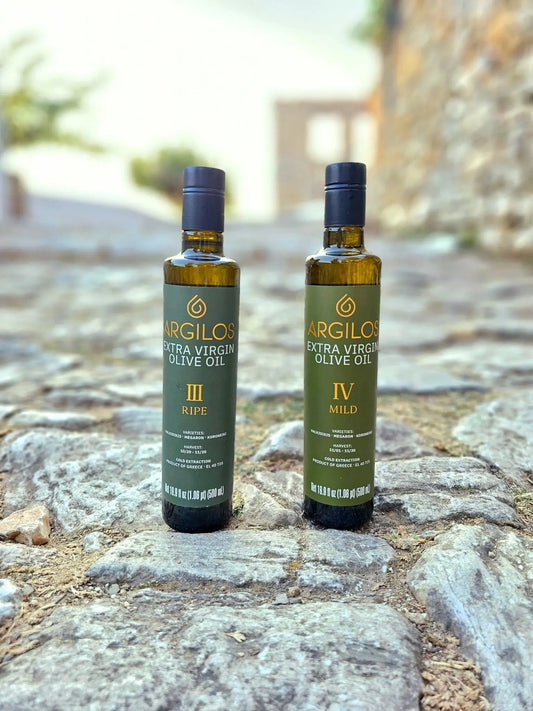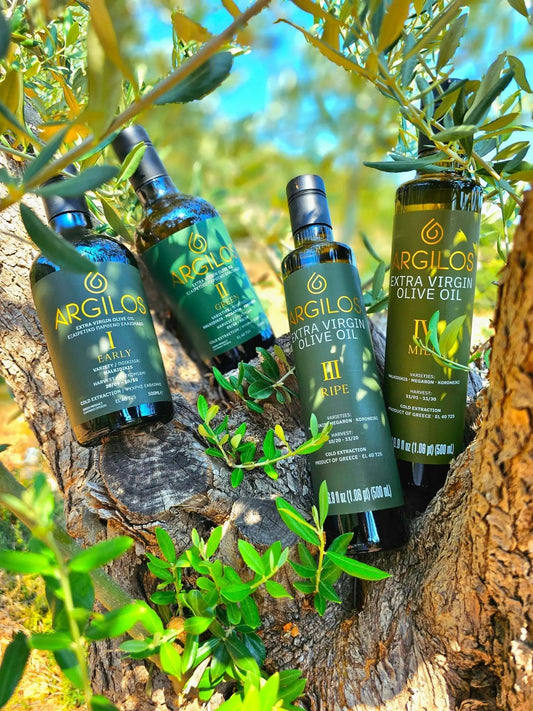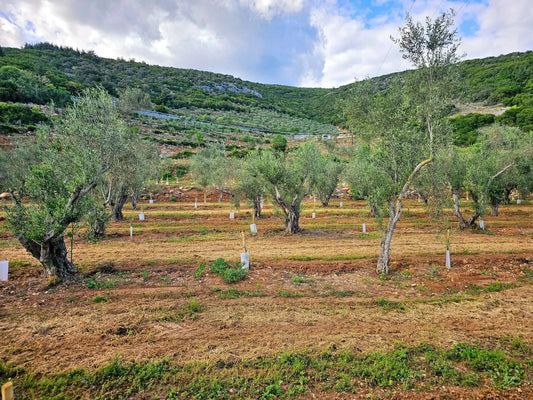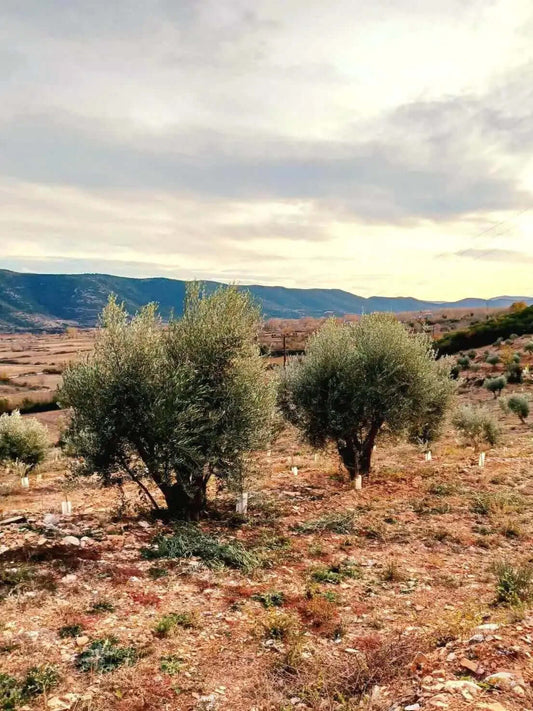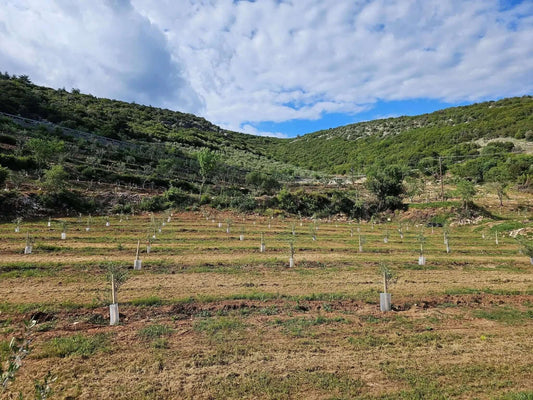Why Home Tastes Sweet: The Story Behind Nostos
Share
The Meaning and Origin of 'Nostos'
The word nostos (νόστος) comes from ancient Greek and literally means “homecoming” – specifically, the return of a hero to his home after a long journey. In Greek mythology, nostos wasn’t just a casual homecoming; it was a major theme celebrated in epic poetry. The plural form nostoi even served as the title of a lost epic poem that recounted the homecomings of the Greek kings and warriors after the Trojan War. This fact highlights how culturally important the idea of returning home was in ancient Greek storytelling.
Our modern term nostalgia is directly rooted in this concept – it combines nostos (homecoming) with algos (pain) to describe the bittersweet longing for home or the past. In other words, embedded in our language is the recognition that going home can be both deeply joyful and tinged with melancholy.
The Sweetness of Homecoming
Why do we so often describe returning home as sweet? The ancient Greeks themselves made this connection. In their language, the word nostos became closely associated with pleasant sweetness. One early Greek lexicon explains that in common usage nostos meant “sweetness,” applied especially to things edible – a meaning drawn from the sweet joy of returning home. It even comments that “nothing is sweeter than your fatherland,” echoing Homer’s sentiment, and notes that from nostos came the term nostimon, meaning “pleasant” or “sweet”. Over time, this led to the modern Greek word nostimo, which means “tasty” or “delicious.” The very idea of coming home was so often linked with joy and comfort that it lent its name to the flavor of good food.
We can all intuitively understand this link between homecoming and sweetness. Think of the phrase “home sweet home,” or the comforting aroma of a favorite meal cooking when you return to your family’s house. There is a deep emotional satisfaction in coming back to a place of belonging, and it often comes with sensory pleasures, the taste of a familiar dish, the smell of a loved one’s kitchen, the sight of a well-known landscape. Psychologists have noted that the senses of taste and smell are powerful triggers of memory and emotion: foods tied to positive memories or comfort are often perceived as tasting better. Little wonder that a homecoming is not only an emotional fulfillment but can feel like a feast for the senses. It is comfort in the truest sense – as soothing and satisfying as sipping warm soup on a cold day or breaking bread with family.
For the ancient Greeks, the sweetness of nostos was often literal. In The Odyssey, whenever a weary traveler finally reaches home or a safe haven, there is usually food, drink, and celebration. Homecoming was typically marked by a welcoming feast – a tangible taste of relief after the trials of travel. Thus, the idea of nostos became symbolically tied to nourishment, safety, and delight. Returning home engaged the whole being: heart, soul, and palate. It meant the wanderer could finally relax, taste bread and wine in familiar company, and savor the comfort they had long dreamed about.

Nostos in Greek Mythology and Literature
Nostos and Kleos: Two Sides of the Heroic Journey
While warriors in ancient Greece often chased after kleos—that sweet, humming legacy of glory sung by poets long after your sandals have gathered dust—there was a quieter, equally cherished prize: nostos, the return home. If kleos is your name etched in the halls of fame, nostos is what happens when you open your own front door, your quest for renown having come full circle.
Kleos shines its spotlight on the spectacular—the mighty battles, clever words, or cunning escapes that begged for a bard’s retelling. Your triumphs, in other words, become the stuff of legend precisely because someone else can’t resist singing about them. Think Achilles, whose exploits were chanted through eternity despite his doomed fate.
Nostos, by contrast, is more personal. It’s the hope (and Herculean effort) to survive adventure, hardship, and the occasional wrathful god, just to see familiar faces and landscapes again. Where kleos is the epic stage, nostos is the hearth. What makes nostos especially compelling is that the hero often tells this story himself—Odysseus' yarns about shipwrecks and one-eyed monsters are as much about longing as they are about survival.
Both concepts are tightly woven into the Greek imagination. Kleos is the voice booming out from Olympus; nostos, the sigh of relief when your battered ship finally beaches on Ithaca’s shores. Greek heroes wanted their stories to echo, but they never lost sight of home’s pull, making the journey as vital as the eventual tale.
In Homer’s The Odyssey, Odysseus’s ten-year quest for nostos—his return to Ithaca after the Trojan War—defines his epic journey. Beset by trials, he faces shipwrecks, monsters, and temptations that threaten to derail his homecoming. The Lotus-Eaters’ fruit saps the will to return, while the Sirens’ haunting song lures sailors to their deaths. Yet Odysseus remains resolute, famously tying himself to his ship’s mast to resist the Sirens’ call, his heart fixed on reuniting with his wife, Penelope, and his homeland.
For Odysseus, nostos outweighs all else. He rejects immortality offered by the nymph Calypso, choosing the mortal joys of home over eternal exile. As Homer writes, “Nothing is sweeter than a man’s own parents and country,” capturing the ancient Greek reverence for home, a bond surpassing divine allure. Odysseus’s triumph, reclaiming his house from suitors and embracing Penelope, crowns his arduous journey, embodying nostos as a hard-won, cherished restoration.
Telemachus and the Inheritance of Nostos
Along the way, he encounters wise kings like Nestor and Menelaus, gathering tales of hardship and perseverance. Through these encounters, Telemachus matures: the uncertainty and longing of his departure giving way to confidence and a clearer sense of purpose. When he finally returns to Itahaca, he brings with him not just knowledge of his father’s fate, but also a newfound strength—ready to stand beside Odysseus and restore their household. In this way, Telemachus's experience reveals that nostos is not just about returning home physically, but about the personal transformation that such a journey inspires.
Not all Greek heroes fare as well. Agamemnon’s tragic homecoming, marked by betrayal and death, warns that nostos can be perilous. Yet the enduring theme of nostos in Greek literature reveals a timeless human longing: the drive to return home, powerful enough to inspire epic deeds and stories that resonate across millennia.



